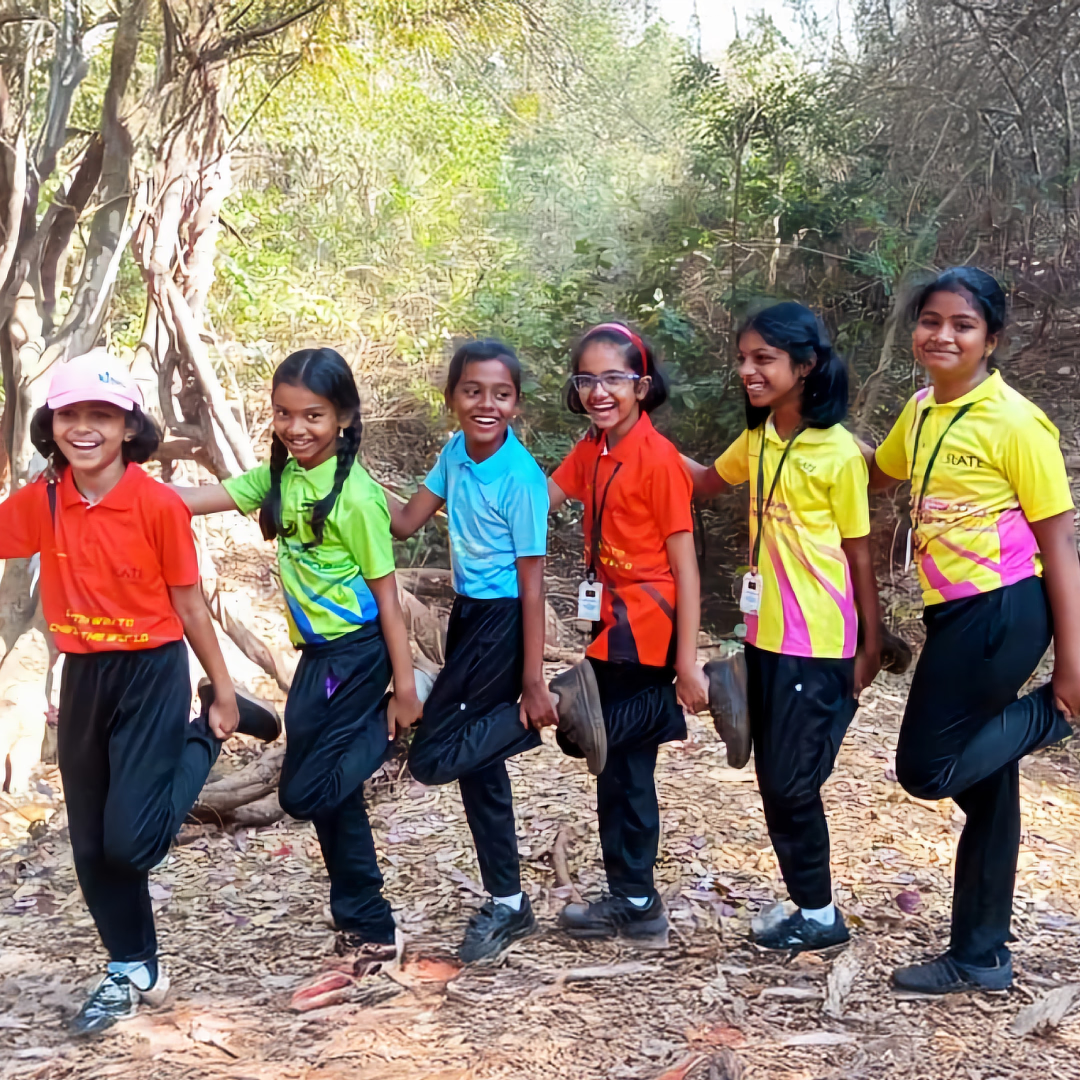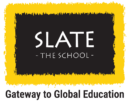Our Philosophy
Welcome to Slate: Your Gateway to Global Education
At Slate, we are shaping the leaders of tomorrow by opening the doors to a world of opportunities. As a Gateway to Global Education, we prepare students to thrive in an increasingly interconnected and AI-driven world. Through a combination of academic excellence, life skills development, and exposure to cutting-edge subjects, we equip our students with the tools to succeed in any field they choose, anywhere in the world.
At Slate, we envision education as more than just a pursuit of knowledge—it’s a transformative journey that opens doors to a world of boundless opportunities. As a Gateway to Global Education, we are committed to preparing our students to thrive in an ever-changing, interconnected world where the ability to navigate across cultures, industries, and technologies is crucial to success.

Our philosophy is rooted in the belief that education should not only develop academic excellence but also foster critical life skills, global awareness, and a strong sense of social responsibility. With the rapid advancement of artificial intelligence, emerging technologies, and global challenges, it is vital that education adapts to prepare students for the future, wherever it may take them.
At Slate, we go beyond traditional education by blending cutting-edge curricula with holistic development. We create an environment where students are encouraged to explore, innovate, and develop the values and mindsets necessary to lead in a globalized, AI-driven world. Whether through academic rigor, life skills programs, we ensure that each student is equipped with the tools to excel on a global stage.
By positioning ourselves as a Gateway to Global Education, we unlock a pathway for our students to connect, learn, and contribute on a worldwide scale. From mastering future-ready subjects to nurturing emotional intelligence, adaptability, and collaboration, our students are empowered to navigate complexities with confidence, curiosity, and compassion. As a school dedicated to excellence, we provide our students with the foundation they need to seize the opportunities of tomorrow. Our focus is not only on imparting knowledge but also on shaping leaders, innovators, and global citizens who can make meaningful contributions to society, both locally and internationally.
SAMPOORNATHA- Cultivating Wisdom
A holistic approach to nurture Natural Intelligence for the Age of Artificial Intelligence!
SAMPOORNATHA, or holism, epitomizes SLATE’s comprehensive, 360-degree child-centred philosophy. It serves as our method for nurturing wisdom among SLATERS, preparing them for future challenges, and empowering them with essential Futuristic Skills. This meticulously crafted 10-point program is scientifically tailored and age-appropriate, aimed at sculpting SLATERS into the leaders of tomorrow.
Conceived by the esteemed academician and chairman, Mr. Vasireddy Amarnath, SAMPOORNATHA stands as a pioneering initiative. It is the premier comprehensive program, the first of its kind in India and one of the rare few worldwide dedicated to nurturing future leaders prepared to confront the challenges of the AI era head-on.
At Slate, we believe that the mindset with which students approach life and learning is just as important as the knowledge and skills they acquire. Our signature Sampoornatha Program is built on 10 essential traits that are foundational to personal and academic success in the AI age. Each trait is reinforced through a corresponding positive affirmation. These affirmations act as guiding principles, fostering emotional intelligence, critical thinking, creativity, and adaptability—qualities essential for success in the AI age and beyond.
What do these 10 traits entail, and why are they significant?
Nutritional Intelligence:
I am a Smart Eater! Focuses on making healthy dietary choices that fuel both body and mind, promoting well-being and longevity.
Social Intelligence:
I am Social Smart! Highlights the importance of communication, collaboration, and building meaningful social connections.
Emotional Intelligence:
I am Smart at Heart! Cultivating self-awareness, self-regulation, and empathy. This enables students to understand and manage their emotions and those of others effectively, fostering positive relationships.
Critical and Lateral Thinking:
I am a Smart Thinker! Encouraging analytical and creative problem-solving approaches, empowering students to tackle challenges from multiple perspectives and informed decision-making.
Creativity and Communication Skills:
I am a Smart Innovator! Fostering innovative thinking and effective communication, enabling students to generate new ideas, think critically, and apply their creativity to real-world scenarios, express ideas clearly and persuasively while embracing originality.
Leadership and Complex Problem-Solving Skills:
I am a Smart Leader! Empowering students to take initiative, make informed decisions, and inspire others. Honing their ability to approach complex problems with analytical thinking, creativity, and resilience.
Financial Intelligence:
I am a Smart Wealth Builder! Equipping students with the knowledge and skills needed to understand financial concepts. This helps them make better and more informed financial decisions, save responsibly and learn how to manage resources wisely.
Comprehension, Analysis, Application Skills:
I am Smart at Studies! Enhancing students’ abilities to understand, analyze, and apply information effectively in real-world contexts, promoting lifelong learning.
Interpersonal Skills:
I am People Smart! Developing effective communication and relationship-building skills, helping students interact positively and work collaboratively with others.
Digital Intelligence:
I am Tech Smart! Preparing students to navigate the ever-evolving digital landscape confidently, understanding technology’s role and implications while promoting responsible usage.
